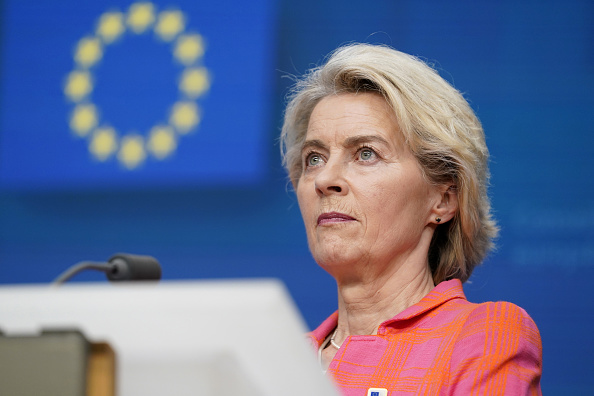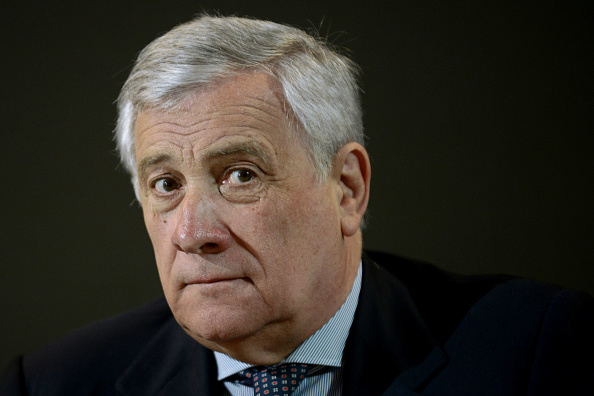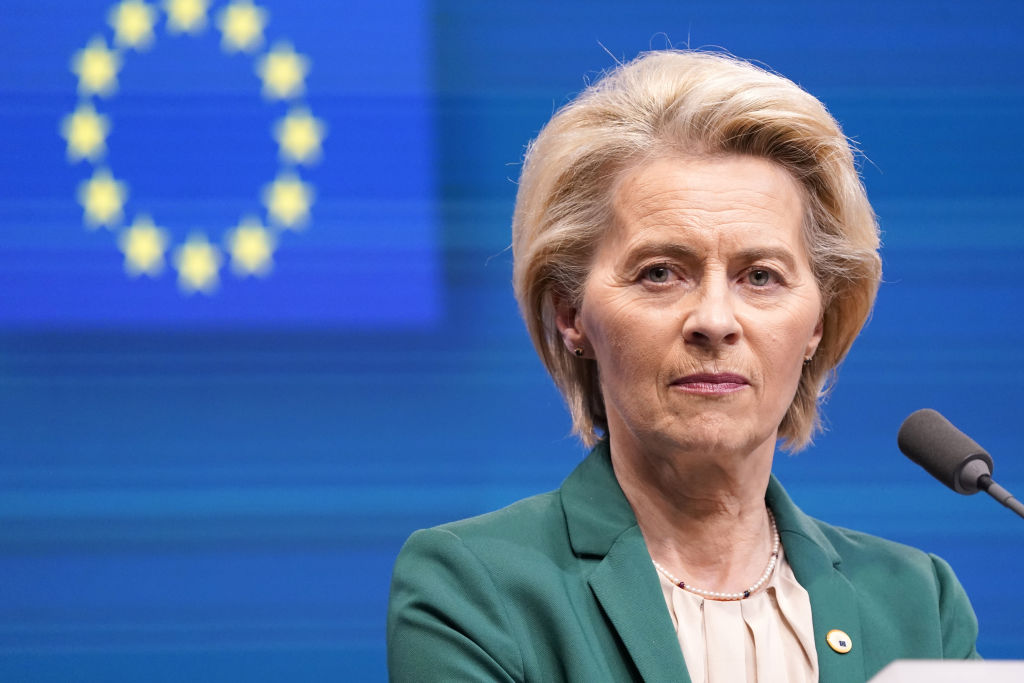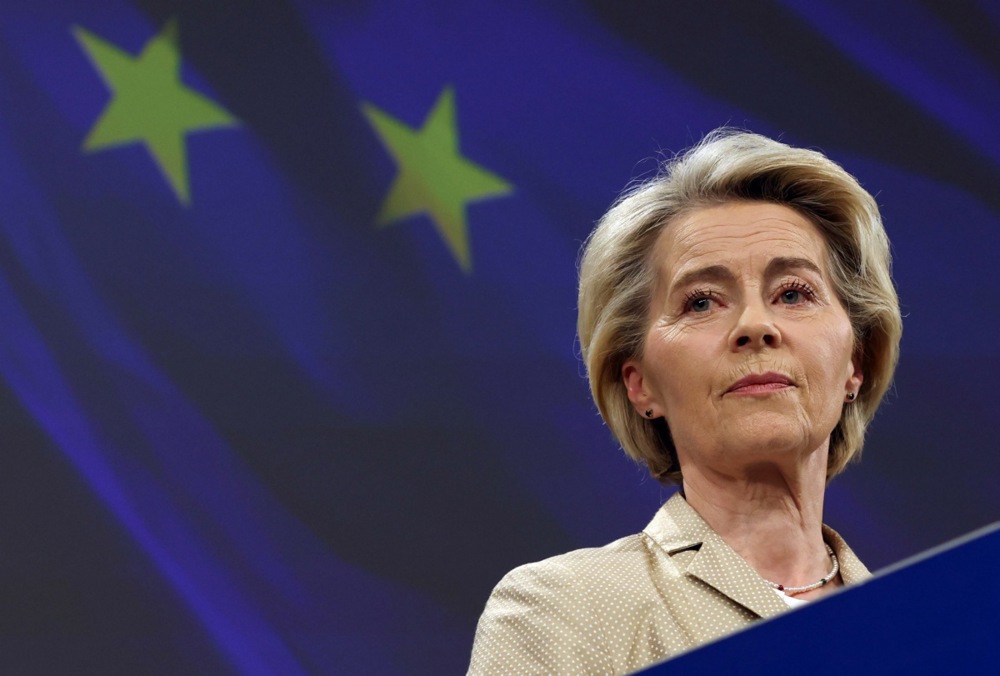European Commission President Ursula von der Leyen is facing a vote of no confidence over the controversial deal she made with Pfizer.
Romanian MEP Gheorghe Piperea, member of the European Conservatives and Reformists, said in a press release on June 26 that he gathered more than the necessary 72 signatures to table the motion.
“After thorough legal and political preparation, I have successfully obtained the required number of supporting signatures to table this motion. This initiative is fundamentally about upholding transparency and ensuring a fair and genuine democratic process.”
The vote came at a moment von der Leyen’s relationship with her traditional centre-left political allies has been strained.
According to Piperea, his motion was supported by some members of von der Leyen’s own centrist European People’s party (EPP), which he said was “surprising”.
He also got the backing from the Polish delegation of the European Conservatives and Reformists (ECR) Group, numerous other ECR members, the entire European Sovereign Nations (ESN) Group, and several Members from The Patriots group as well as Non-attached (NI) Members.
A spokesperson for the Liberal Renew group informed Brussels Signal that the Liberals would not support the vote of no confidence. Meanwhile, a spokesperson for the Socialists and Democrats (S&D) Group mentioned that since the topic had not yet been formally presented, they had no specific comment. However, they emphasised that the S&D Group “is obviously not cooperating with the far right.”
The S&D spokesperson stressed that her group was in constructive talks with von der Leyen regarding their concerns and stated that it would not be coherent to vote no confidence at this time.
Piperea did admit that chances for the vote to pass were rather low, but said the vote would offer a “crucial opportunity for constructive and substantiated criticism towards president von der Leyen.”
“It obliges the Commission to address concerns and provide justifications.”
The Conservative MEP accused the President of the Commission of demonstrating a “pattern of institutional overreach, democratic disregard, and erosion of public trust in the Union’s governance.
“This motion is not taken lightly – it is a necessary and constitutional response to systemic failure. We must act to defend the democratic integrity of the European Union and ensure its institutions are held accountable to the citizens they serve.”
In a mail to his colleagues, seen by Brussels Signal, Piperea said that his initiative “was not driven by political ambition or personal grievance, no does it target Commissioners who carry out their responsibilities with integrity”, but it addressed “serious governance failures”.
He said that he believed that European Union citizens deserved honest governance and true accountability.
“No leader, including the President of the Commission, should stand above the law or values that unite our Union.
“As a lawyer, citizen, and Member of the European Parliament committed to legal accountability, I cannot ignore the European Court of Justice’s ruling that the Commission breached fundamental EU legal principles by withholding communications between President von der Leyen and Pfizer’s CEO.
Piperea used the Pfizergate court case as the main foundation of his motion.
Last month, the European General Court criticised von der Leyen for refusing to disclose text messages exchanged with Pfizer CEO Albert Bourla, confirming accusations of maladministration and document concealment concerning contracts worth a reported €35 billion.
“The court found the commission’s refusal legally unsound and lacking credible justification,” Piperea said. “These actions demonstrate a continued pattern of institutional over-reach, democratic disregard, and erosion of public trust in the Union’s governance.”
COMMENT: The issue with the EU’s vaccine procurement wasn’t corruption or von der Leyen’s personal gain — it’s the institutional conflict of interest she represents at the heart of the European Commission, writes John Rosenthal. https://t.co/XoNjk2cWwJ
— Brussels Signal (@brusselssignal) May 16, 2025
Next to the EU Court’s ruling on transparency breaches, Piperea had two other major complaints about von der Leyen’s conduct.
In a second argument, he accused her of “unlawful interference in national elections: The misuse of the Digital Services Act (DSA) by the Commission to interfere in elections in Member States such as Romania and Germany.”
He said this represented “a direct threat to national sovereignty and the integrity of democratic processes.”
Finally he also pointed at what he called “the misapplication of Article 122 TFEU for ‘Rearm Europe'”. Piperea said that the defence initiative constituted a serious abuse of its mandate.
“This Treaty article was never intended for long-term defence investments, and its use in this context undermines the legal foundations of EU policymaking.”
This last complaint was completely in line with an EP vote earlier this week, as just a few days ago, JURI, the Committee on Legal Affairs, has voted to pursue legal action against von der Leyen’s €150 billion defence fund SAFE.
According to MEPs, the European Parliament was unconstitutionally excluded from the decision-making process.
Twenty MEPs on the committee voted in favour of the legal challenge, with three opposing, indicating that the discontent is widespread across the parties.
Socialists and Democrats, part of von der Leyen’s majority, spoke of her “repeated decisions to bypass this institution through emergency legislation,” and her “clear strategy of consolidating power within the EU Executive.”
Von der Leyen has been getting flack from Socialists and Liberals due to her intention to pull back the proposed Green Claims Directive, banning so-called greenwashing, the practice where companies make misleading or false claims about the environmental benefits of work to appear more environmentally friendly than they actually are.
On Wednesday, the Socialists and the liberal Renew group jointly wrote to Parliament President Roberta Metsola, the FT reported. They urged her to address the issue with von der Leyen and EU leaders at Thursday’s summit.
Both parties have recently threatened to leverage the Pfizergate scandal against European Commission President, saying they might “stop protecting” her and could push for greater scrutiny or support investigations into her actions if she continues to prioritise right-wing agendas.
European Commission President Ursula von der Leyen has received the Charlemagne Prize, leading to criticism from MEPs who called the award “a blatant contradiction to the fundamental values for which this prize was originally created”. https://t.co/7v2vl2PJIH
— Brussels Signal (@brusselssignal) May 30, 2025





